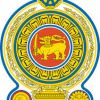වෛද්ය පශ්චාත් උපාධි ආයතනය කොළඹ විශ්ව විද්යාලය
Vision
To be a financially and administratively independent institute,internationally recognized as an center of excellence, producing specialists of high professional standards, to meet health needs of the country and contribute to regional and world health in a responsive manner
Mission
The mission of the institute is to plan, implement, monitor and evaluate postgraduate academic programs required to produce specialists of the highest quality, competence and dedication in order to provide optimum humane health care to the people of Sri Lanka, whilst being mindful of our wider responsibilities to the region and the world.
1870 – The Ceylon Medical College, established in 1870 during the British occupation, marking the beginning of a formal system of ‘western’ medical education in Sri Lanka, known then as Ceylon. Seventy years later in 1942 the Ceylon Medical College became the Faculty of Medicine of the newly established University of Ceylon. There were no formal arrangements for postgraduate medical training or examinations, and the Faculty of Medicine of the University of Ceylon was focused almost entirely on undergraduates.
1952 – The MD (General Medicine) and the MOG (Obstetrics and Gynaecology) examinations were held by the Faculty of Medicine. The MS (General Surgery) was held in the following year.
OldPGIM1However, there was no systematic training or teaching programmes for those examinations, and the diplomas awarded by the Royal Colleges in the UK, such as the MRCP and FRCS were regarded the sole qualifications conferring eligibility for consultant posts in the Department of Health Services.
1973 – The Advisory Committee on Postgraduate Medical Education recommended to the government that an institute be established for postgraduate medical training, providing formal courses of in-service training followed by the respective examinations.
1976 – The Institute of Postgraduate Medicine came into being. It was established under the University of Ceylon Act No.1 of 1976 and was formally opened by Dr. Halfden Mahler, Director General of the WHO. Its first Director was Professor K N Seneviratne.
The functioning of the Institute of Postgraduate Medicine was seriously hampered by a lack of resources and appropriate infrastructure, and because the postgraduate diplomas of the Royal Colleges in the UK continued to be recognised by the government as an appropriate qualification for appointment to consultant posts in the Department of Health Services. With the departure of its first Director to accept a position in the WHO the Institute’s progress suffered a further setback.
old pgim1980 – The government finally decided to grant full recognition to local postgraduate degrees for appointment to consultant posts, and the Institute, re-named as the Postgraduate Institute of Medicine (PGIM), was established under the provisions of the Universities Act No. 16 of 1978. Dr. SA Cabraal was appointed as



